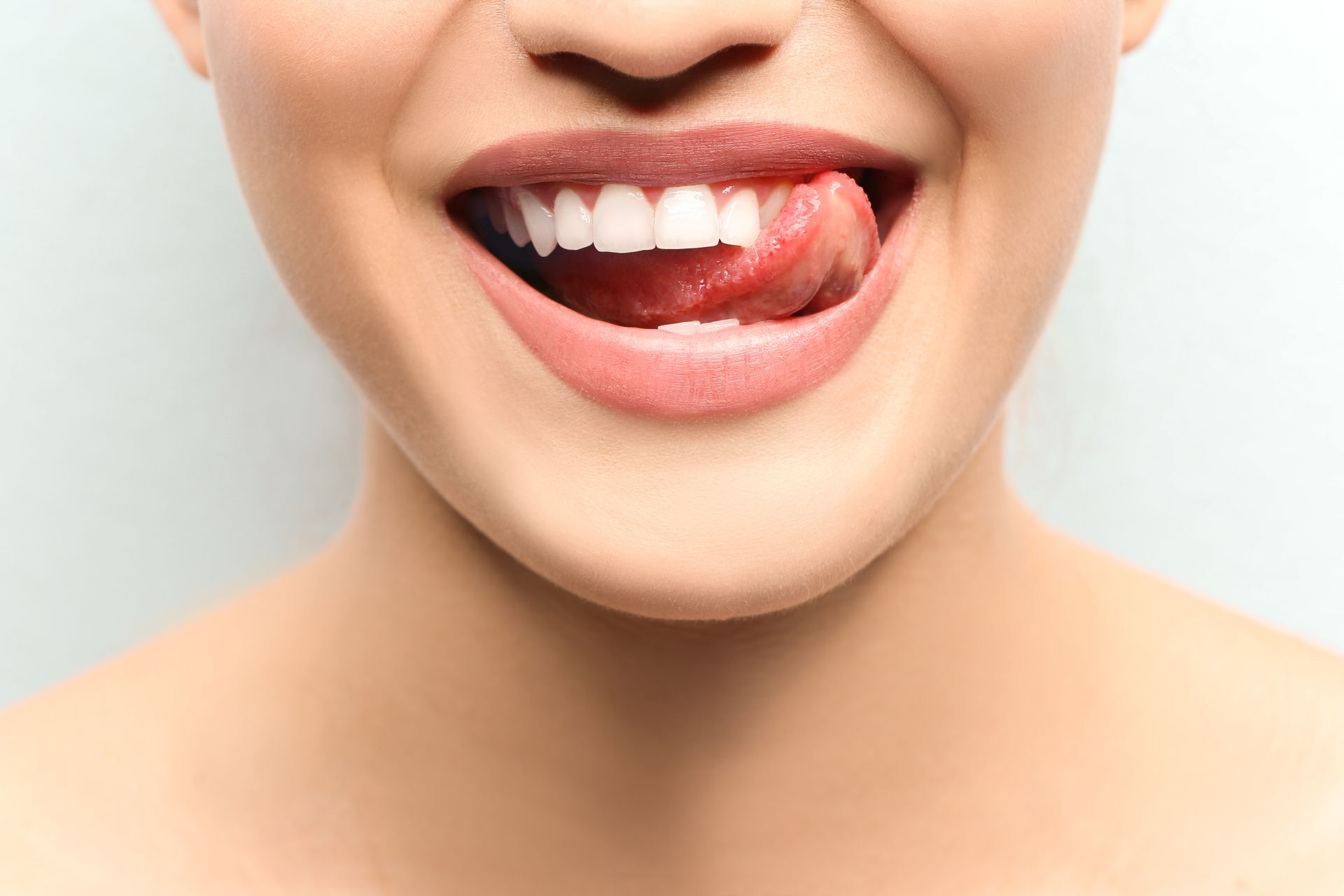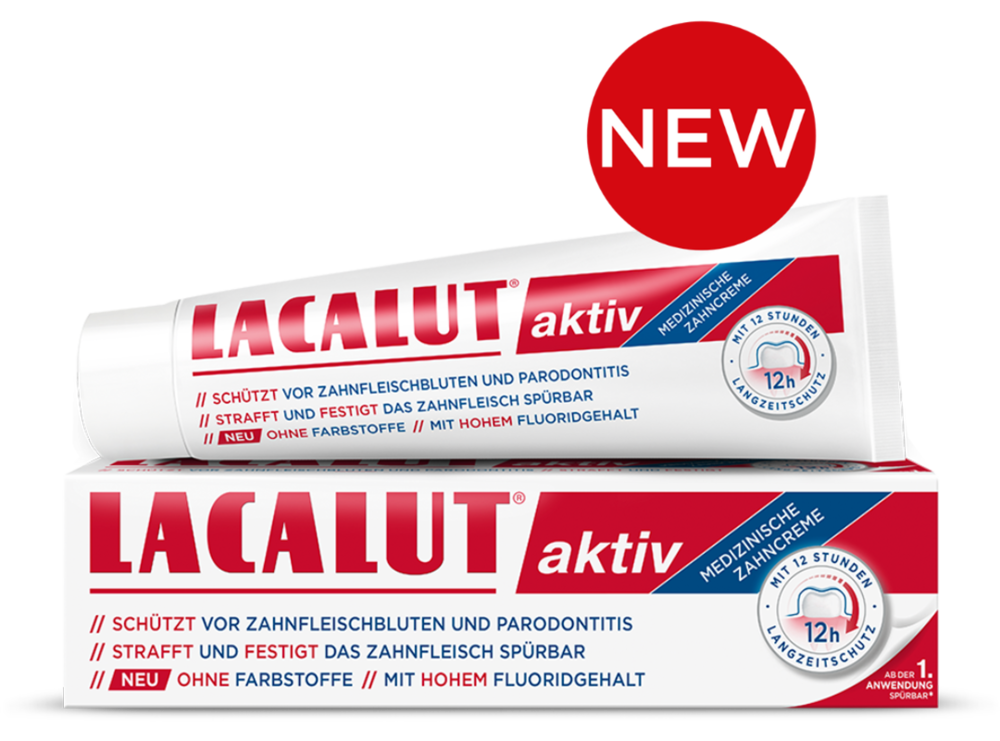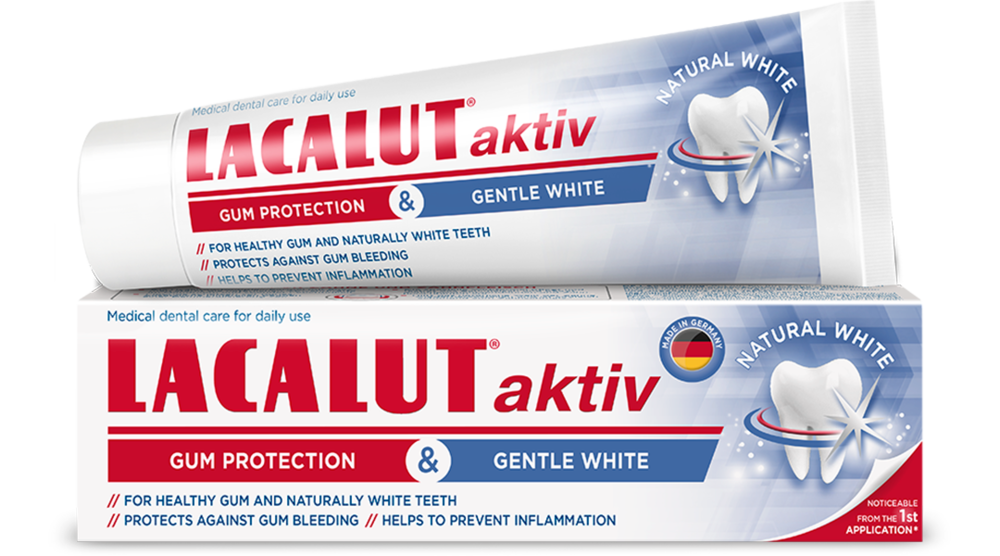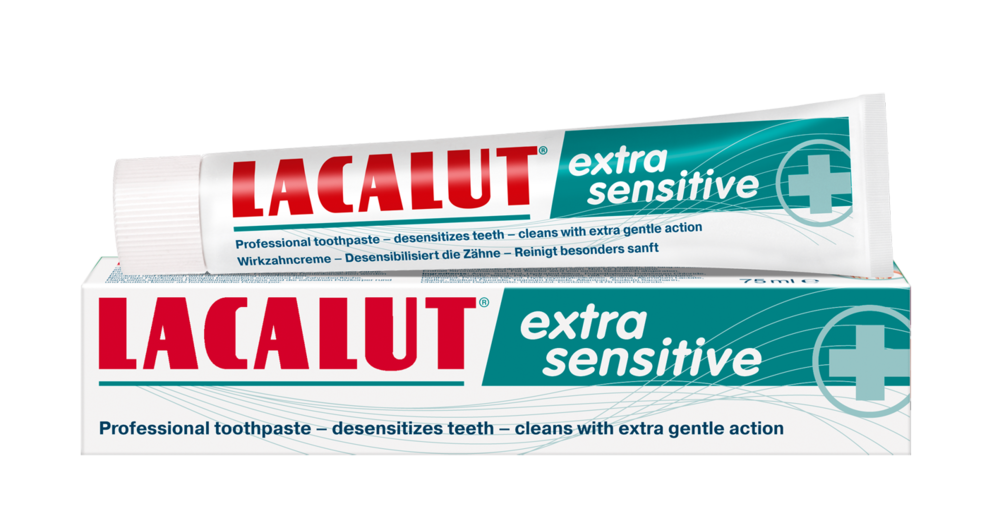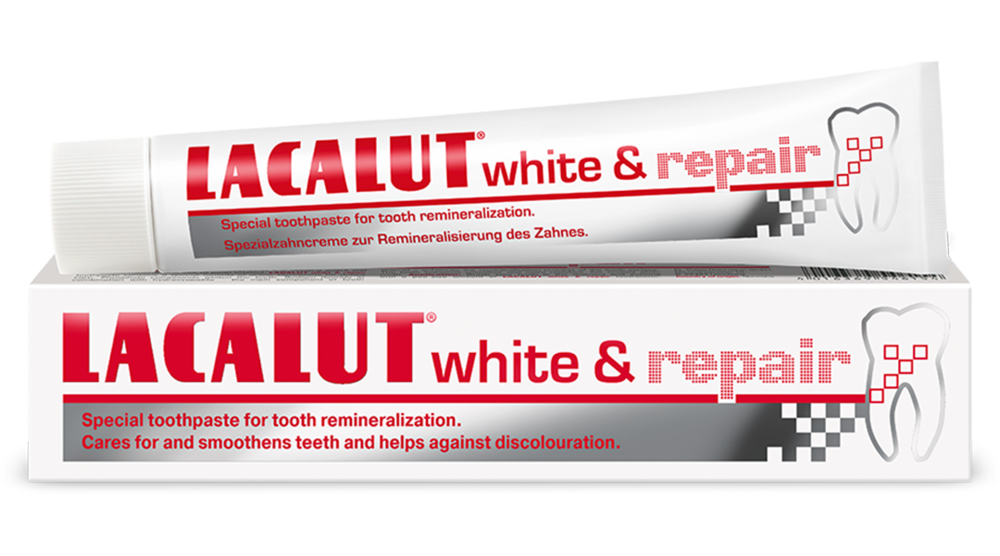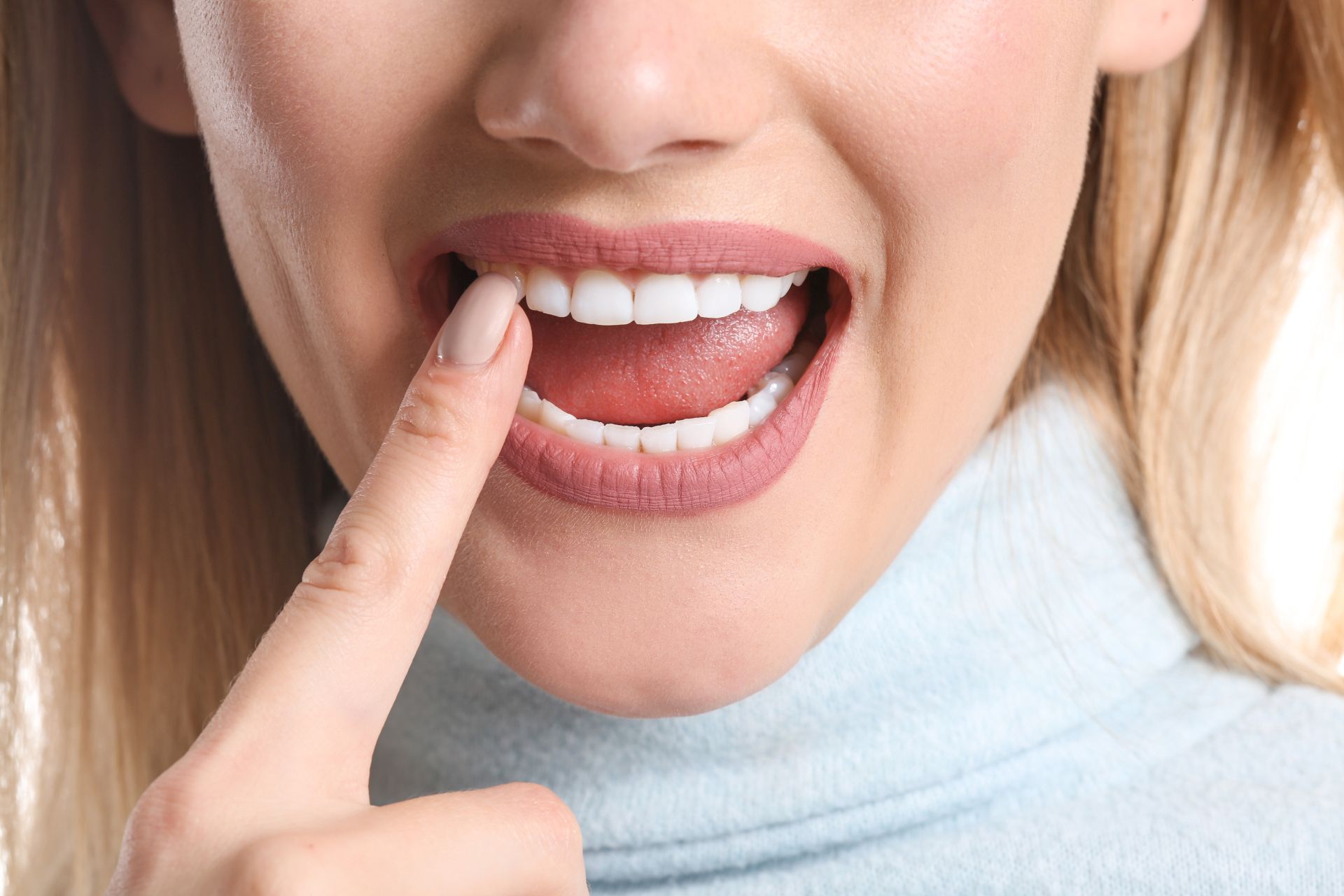The symptoms of plaque can usually be seen with the naked eye: whitish-yellow plaque builds up on the tooth surfaces, tartar becomes visible (and can be felt when touched with the tongue), bad breath and bleeding gums are other common accompanying symptoms. If the plaque becomes thicker, the teeth will even feel rough and dull. This condition is far removed from the fresh feeling you get after brushing your teeth when everything feels smooth and clean.
Causes of dental plaque: Predisposition, nutrition, care
Plaque itself is something completely natural and part of our oral flora – it just has to be removed regularly to not become a health hazard. Some people are more prone to the formation of plaque due to the composition of their saliva, others less so. However, the factors nutrition and oral hygiene are much more important than someone’s predisposition. If plaque is not removed from the teeth’s surfaces regularly, i.e. at least twice a day, minerals contained in the saliva will accumulate and lead to a mineralisation of the plaque. The consequences are tartar, which can only be removed with professional tooth cleaning, as well as irritated gums. If plaque remains untreated, tooth decay, inflammation of the gums (gingivitis) and periodontitis can follow. However, if plaque is removed within 24 hours, tartar does not usually form.
Dental plaque – this is how it forms
Many different bacteria and germs live in the mouth, some useful and beneficial for dental health, others harmful and pathogenic. Among other things, these bacteria live directly on the tooth surface in the so-called biofilm. This fibrous/soft, textured, microbial plaque is the baseline of plaque, so to speak. Inside the biofilm, the bacteria are protected from external influences and can multiply rapidly. Under ideal conditions, plaque will form quickly in this way.
A sugary diet promotes plaque
If microscopically small food residues remain on the tooth surface after eating or drinking, this offers caries-causing bacteria and germs ideal conditions in which to live and to multiply. Food and beverages containing sugar actually increase the number of acid-forming bacteria because these are being fed, so to speak. The caries-causing bacteria convert refined sugar into aggressive acids, such as lactic acid which attacks tooth enamel and which can even destroy it over time. Other bacteria that are found in plaque form odour-intensive sulphur compounds, resulting in bad breath.
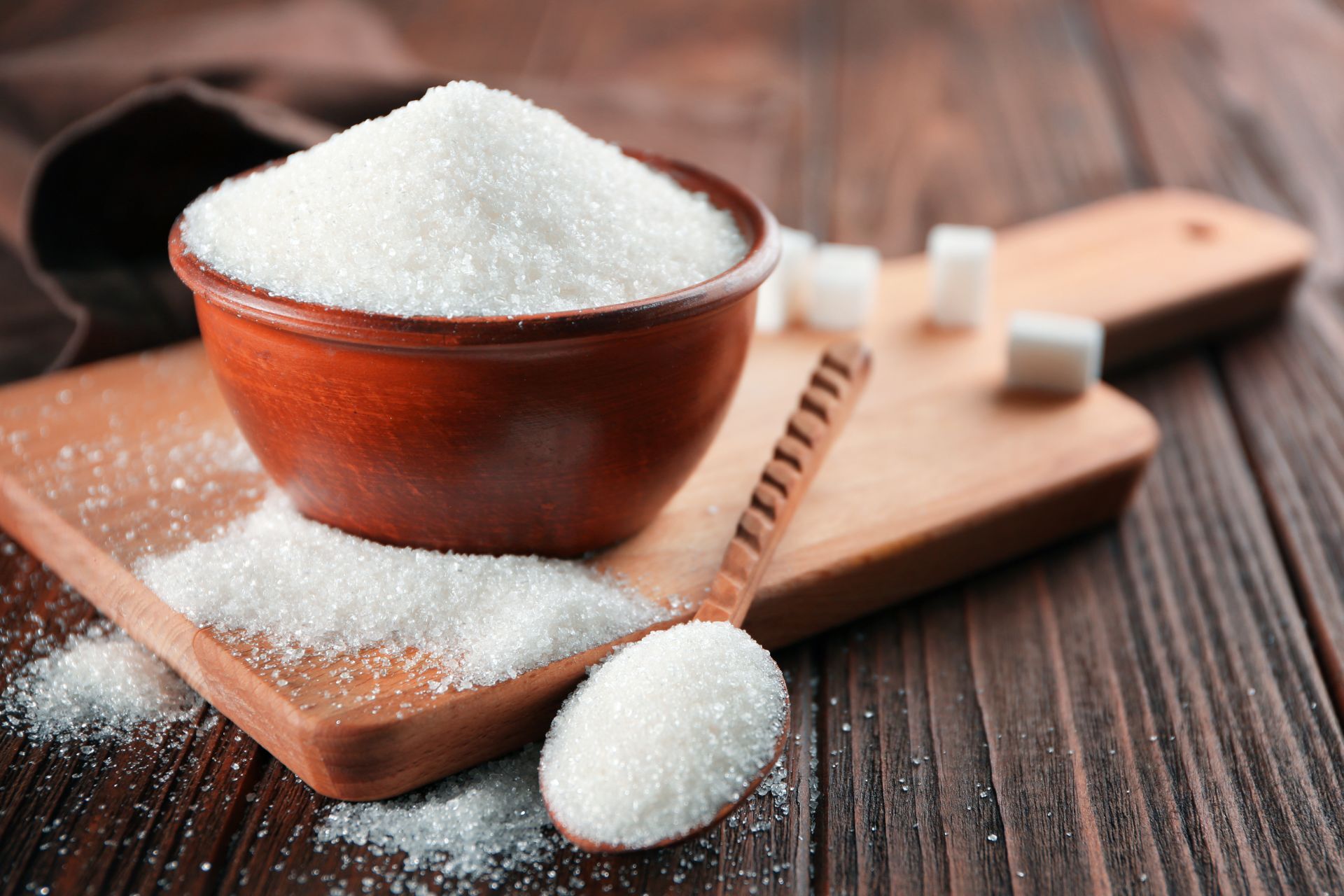
If microscopically small food residues remain on the tooth surface after eating or drinking, this offers caries-causing bacteria and germs ideal conditions in which to live and to multiply. Food and beverages containing sugar actually increase the number of acid-forming bacteria because these are being fed, so to speak. The caries-causing bacteria convert refined sugar into aggressive acids, such as lactic acid which attacks tooth enamel and which can even destroy it over time. Other bacteria that are found in plaque form odour-intensive sulphur compounds, resulting in bad breath.
All of these processes are harmful to the teeth. So there's a lot of truth in the saying: “Sugar is bad for your teeth”, especially when dental care is lacking. It is therefore advisable to rinse your mouth and brush your teeth after consuming high-sugar foods and drinks.
Causes of dental plaque
In addition to the main causes, such as lifestyle and predisposition, there are other factors that can promote plaque formation. These include:
- smoking, because the pollutants, tar and nicotine, turn the teeth yellow and make them look brownish
- foods with intense colours, such as coffee, black tea, red wine or spices such as curry and turmeric can discolour the teeth
- low saliva production (dry mouth)
- medication
- a weakened immune system
Thorough dental care is the best prophylaxis
To what extent plaque can spread and settle in the mouth is up to you. The thoroughness and regularity of dental care are both crucial factors. Simply scrubbing your teeth is not enough; teeth should be cleaned as follows:

To what extent plaque can spread and settle in the mouth is up to you. The thoroughness and regularity of dental care are both crucial factors. Simply scrubbing your teeth is not enough; teeth should be cleaned as follows:
- Use a fluoridated toothpaste like our LACALUT® active toothpaste and focus on each tooth individually. Whether you use a simple manual toothbrush or an electric one is up to you.
- Once the teeth have been cleaned from all sides using the toothbrush, follow up with dental floss and ideally also interdental brushes. These tools can also be used to clean the interdental spaces that are hard to reach.
- To reduce the bacterial load in the mouth or on the tongue, a tongue scraper or tongue brush can be used.
- Finally, antibacterial mouthwash from the pharmacy like our LACALUT® aktive mouthwash solution or a homemade chamomile tea can reduce plaque.
Wie effektiv das Zähneputzen war, kann man sogar spüren, indem man vor und nach dem Zähneputzen mit der Zunge über die Zahnoberfläche fühlt und vergleicht. Ist alles glatt anstatt rau, war das Zähneputzen sorgfältig. Außerdem sollte mindestens ein, besser zwei Mal pro Jahr eine Routineuntersuchung beim Zahnarzt anstehen, um auch versteckte Plaque und Zahnstein zu erkennen und durch eine professionelle Zahnreinigung zu entfernen. Im Unterschied zum Zähneputzen daheim werden bei der professionellen Zahnreinigung Ultraschallgeräte und verschiedene Handinstrumente wie Scaler und Küretten eingesetzt, um den festen Zahnstein zu entfernen.
Particularly vulnerable areas in the mouth
Some areas are particularly prone to plaque build-up because they are harder to reach when you are brushing your teeth. These should be cleaned accordingly thoroughly:
- the pits of the teeth (medically known as: fissures)
- interdental spaces
- gum line
- dentures
- partial or total dentures
- bridges
- crowns
- fixed braces or splints
Dental floss and interdental brushes can also be used to counteract this tendency to some extent, but these areas are always more vulnerable than, for example, the fronts of the incisors. Tooth staining tablets can also be somewhat helpful to check your own tooth brushing. They make plaque visible as the dyes from the tablet attach themselves to the plaque that is still present. This reveals problem areas.
Increased risks for pregnant women
Dental care is particularly important during pregnancy because the altered hormonal balance makes the oral cavity more susceptible to gingivitis and diseases such as periodontitis. That's why it's all the more important for pregnant women to remove plaque regularly and thoroughly before it causes problems – it's better to do too much than too little.

Dental care is particularly important during pregnancy because the altered hormonal balance makes the oral cavity more susceptible to gingivitis and diseases such as periodontitis. That's why it's all the more important for pregnant women to remove plaque regularly and thoroughly before it causes problems – it's better to do too much than too little.
When a visit to the dentist becomes necessary
Most people don't visit their dentist until the plaque has turned to tartar, possibly even causing painful inflammation. If plaque causes problems over a long period of time, a dentist should clarify whether there may be a serious cause for this. Routine checkups should be firmly scheduled!
